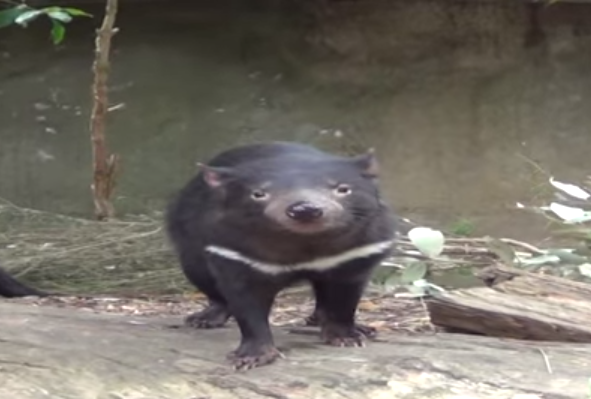The corkscrew bacterium, leptospirosis, has never been detected in the Tasmanian devil, until now thanks to a PhD student from the University of the Sunshine Coast in Queensland.
Doctoral student, Sarah Wynwood developed a technique for testing leptospirosis in humans and animals as part of her PhD study, which in turn resulted in detecting leptospirosis bacteria in Tasmanian devils for the first time and isolated a strain of the disease never before seen in Australian wildlife.

Image/Video Screen Shot
Dr David McKay, who is supervising Wynwood’s research at the university said, “Sarah’s work opens up a range of interesting research possibilities which could lead to a better understanding of the disease in devils and also allow better methods of conservation,” he said.
“Of particular interest would be defining just how virulent this unique type of the bacterium is in devils and whether there is any link between leptospirosis and the devil facial tumour disease that’s causing a critical decline in devil populations.”
Wynwood added, “As this is the first time leptospirosis has been seen in Tasmanian devils, and the first time this particular strain has been seen in any Australian wildlife, I believe it’s clear there is still much more research to be done in this field.”
Leptospirosis is a zoonotic disease with a worldwide distribution caused by infection with any of several pathogenic serovars of Leptospira. The disease affects virtually all mammals and has a broad range of clinical effects, from mild, subclinical infection to multiple-organ failure and death.
Ms Wynwood recently presented her PhD paper at the Australian Mammal Society annual conference in Hobart, and submitted her final thesis on the topic late last month.
Robert Herriman is a microbiologist and the Editor-in-Chief of Outbreak News Today
Follow @bactiman63
Related:


One thought on “Leptospirosis detected in Tasmanian devil by Australian doctoral student”